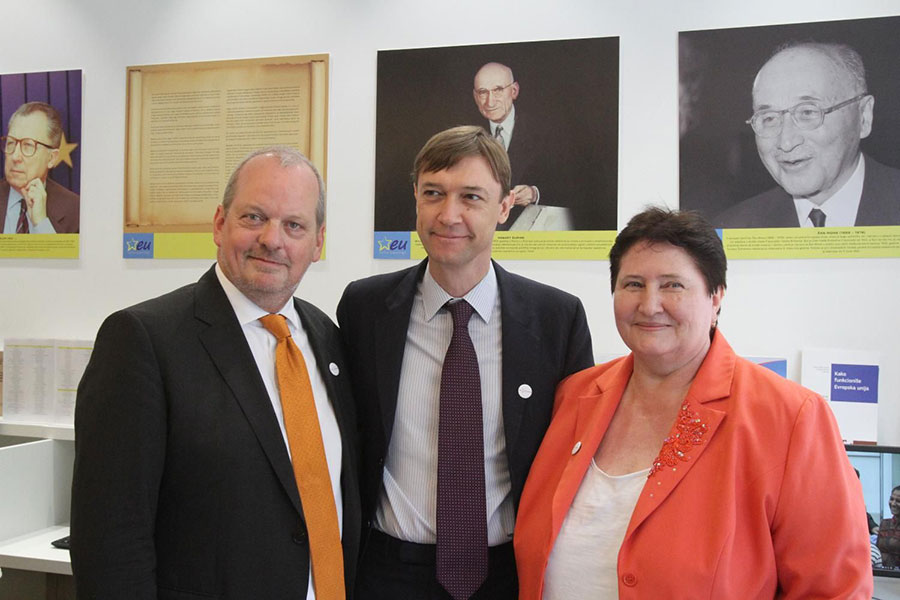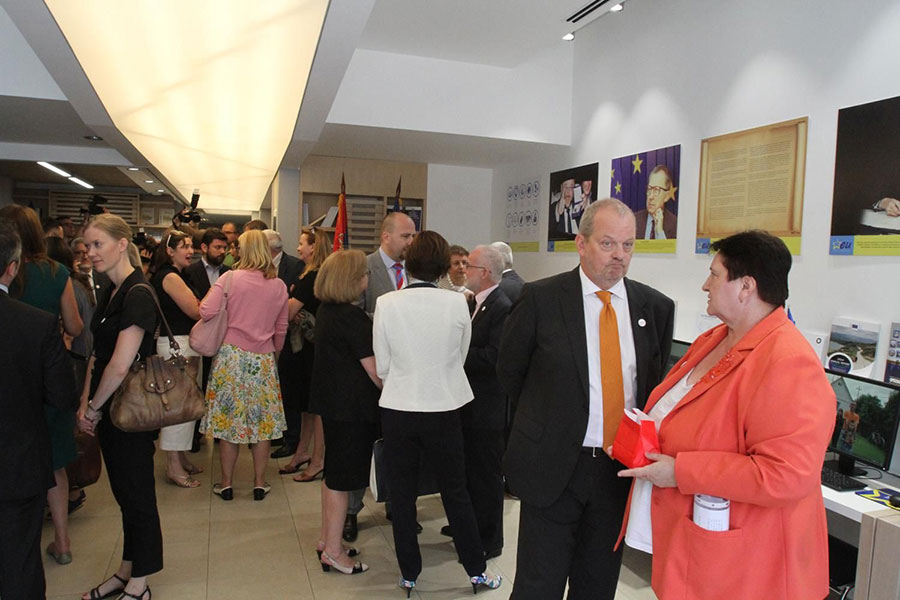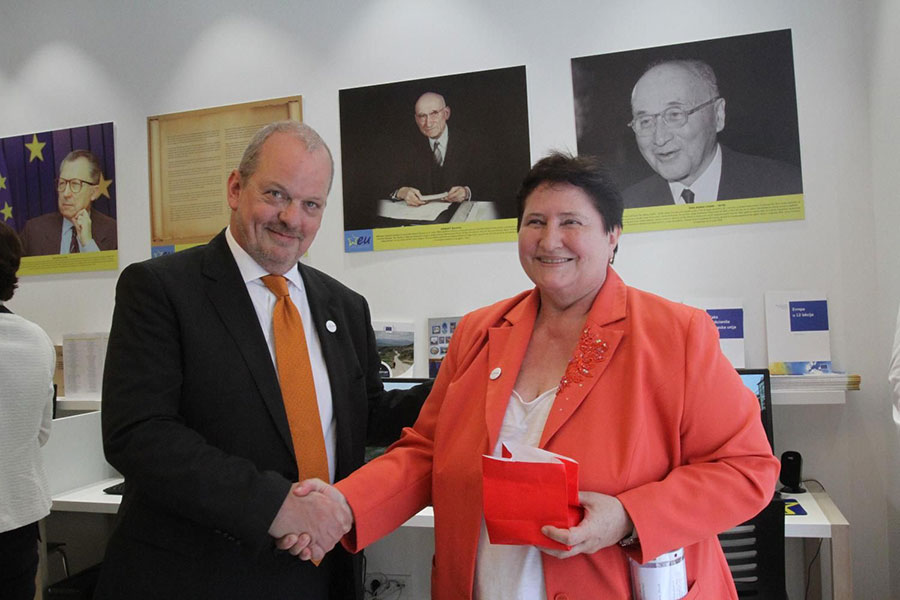Together with the Dutch Embassy in Belgrade and in cooperation with the EU Delegation to Serbia and EU Info Centre, the Embassy of Slovakia has organised a symbolic handing over of the baton of EU Council presidency. The EU presidency, to be taken over tomorrow by Slovakia, 1 July, is among the most important and demanding tasks of being an EU Member State. Over the course of next six months, Slovakia will be leading sessions at all level of the EU Council, taking care of EU legislation making process from the level of experts all the way to ministerial level.
This is the 116th rotating presidency of the EU but only the first for Slovakia. Slovakia joined the EU 12 years ago along with nine other mostly communist countries from Central and East Europe. As of 2009, Slovakia has also been a member of the Eurozone.
One of its first tasks is to organise the EU Summit in Bratislava on 16 September where the EU-27 leaders will discuss the future of the Union following the departure of the UK.
 As pointed out by Slovakian Ambassador in Serbia Dagmar Repčekova “the EU is faced with numerous challenges at this moment in time. Slovakian presidency kicks off at the moment when the EU is faced with migration crisis which undermines the integrity of Schengen area; the consequences of British referendum; the threat of terrorism which does not seize to echo the attacks in Paris and Brussels; as well as the consequences of economic and financial crisis with which the economies of EU Member States are still struggling.”
As pointed out by Slovakian Ambassador in Serbia Dagmar Repčekova “the EU is faced with numerous challenges at this moment in time. Slovakian presidency kicks off at the moment when the EU is faced with migration crisis which undermines the integrity of Schengen area; the consequences of British referendum; the threat of terrorism which does not seize to echo the attacks in Paris and Brussels; as well as the consequences of economic and financial crisis with which the economies of EU Member States are still struggling.”
Despite all that, Slovakian presidency has a positive agenda prepared, focusing on the promotion of sustainable solutions. Slovakian presidency programme draws attention to four priority areas: 1) economically resilient Europe; 2) modern single market; 3) sustainable migrant and asylum policy; 4) globally engaged Europe, set to also deal with the future of enlargement process.
Following Brexit, we must reassure the citizens of the EU that the European Union makes sense, that joint European projects have a practical effect on raising their living standards, and Slovak presidency is ambitious about regaining the trust of EU citizens in the European project, said Dagmar Repčekova.
 She said that Serbia “unfortunately” did not accept the invitation to attend the meeting on justice and internal affairs, which raised the question of whether Serbia was still interested in staying the course of European integration.
She said that Serbia “unfortunately” did not accept the invitation to attend the meeting on justice and internal affairs, which raised the question of whether Serbia was still interested in staying the course of European integration.
“I have no explanation for this,” Repčekova said.




